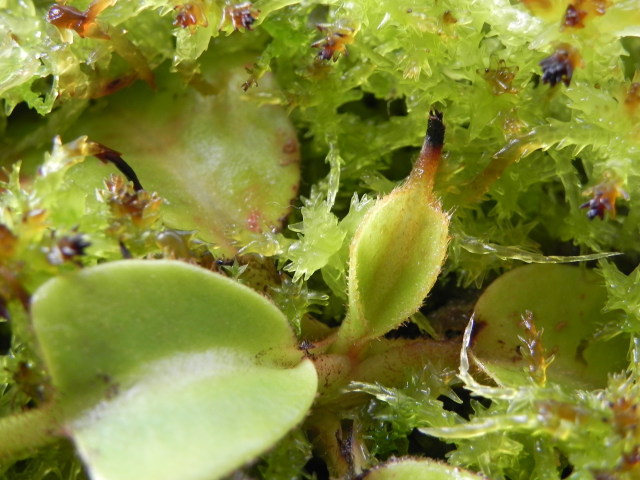Question
 New leaf getting small
New leaf getting small
Hey there, I have a truncata paisan that I bought from a nursery back in January. I don't know why but I recently never had a problem before with Truncata leafs getting smaller. I did the coffee fertilizing method a month ago and I think this what cause it. Can you help me what might cause my truncata leafs to get smaller or why is it getting smaller? Its under 2 26 watts Florescent daylight, potted in LFS, I also watered with distilled water.
AnswerThanks for uploading the photo. That helps me out a lot. Smaller leaves usually occurs when the humidity drops and/or the light levels increase significantly, which occurs when there is a change in environment. It's nothing to worry about. It's the plants way of acclimating to its new conditions.
I would recommend not using coffee on your young plant. The tip of your new leaf had died off, and the tips of your moss are also dark. This happens when there is a lot of nutrients in the soil. Your young plant simply can't process all that nutrients efficiently, so they get deposited at the tip of the leaf where the new pitcher would form, which in turn will affect the size of the leaf. Sphagnum moss will also soak up nutrients and deposit them at the tips. Eventually, if you continue using coffee and the moss can't get rid of the nutrients, it'll die off.
Some growers swear by the coffee method. Others are skeptical. I tried it several years ago with a batch of test plants. After six months of regular treatment, I didn't see any significant difference in the growth to say that it was worthwhile. I found low concentration orchid fertlizer to be more effective and a lot cheaper.
While using fertilizers is helpful for Nepenthes, be very careful using it on young plants or plants that haven't been acclimated to fertilizers. You have to start with very low concentrations to make sure the plants develop the roots and enzymes to process the nutrients.
For more information on growing Nepenthes, watch Volume 3 of the Grow Carnivorous Plants DVD series:
http://www.cobraplant.com/DVD
Good growing!
Jacob Farin






